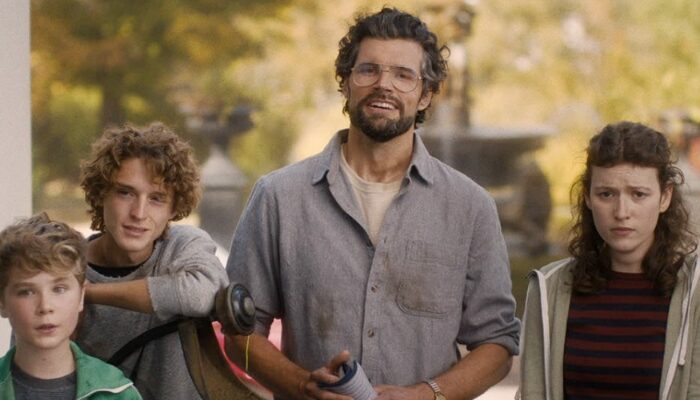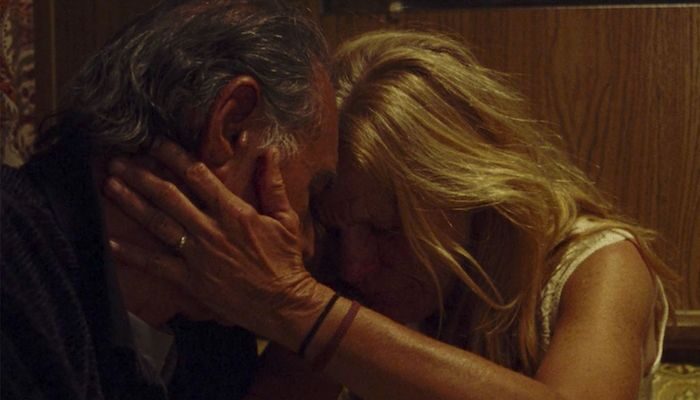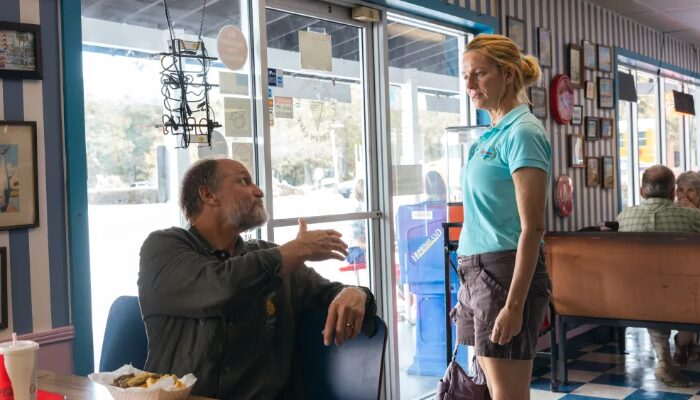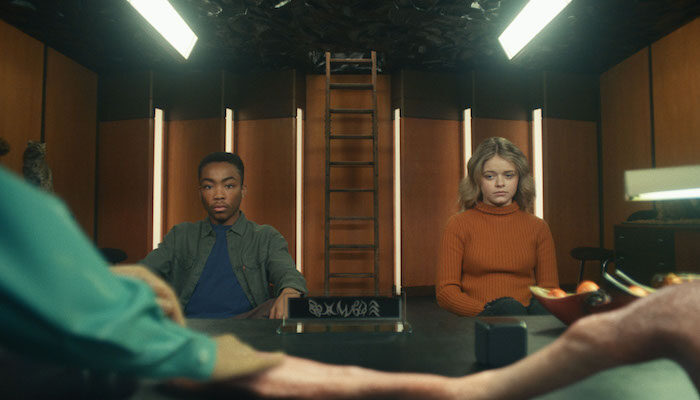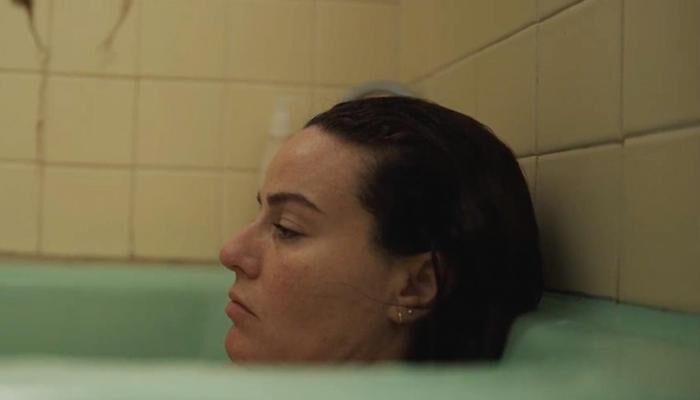Film Review: A LOVE SONG: One-day Affair Ends in Bittersweet Nostalgia [Sundance 2022]
A Love Song Review
A Love Song (2022) Film Review from the 45th Annual Sundance Film Festival, a movie directed by Max Walker Silverman, starring Dale Dickey, Wes Studi, Michelle Wilson, Benja K. Thomas, John Way, Marty Grace Dennis.
Quiet, simplistic grandeur prevails in this film about two friends who reconnect after several decades.
For the first ten minutes or so, watching Faye (Dale Dickey) go about her daily routine at public Campsite No. 7 carries a certain fascination. She doesn’t seem to have any particular purpose in doing this; she might have been fed up with her life, or could have just made an arbitrary decision to simplify like Henry David Thoreau beside a Walden Pond in rural Colorado, from which she catches crawdads in a crab trap for her meals. She presents a exemplary model of craggy, frontier stoicism and resourcefulness.
Faye is neither a misanthrope nor a hermit; she offers coffee with the friendly young postal worker (John Way) who delivers mail via donkey. It becomes clear she expects a delivery of some sort when she quietly declines the request from a quartet of cowpokes with a young girl–about 11 or 12 years old, who speaks like Calamity Jane without the profanity–acting as a sort of interpreter cum spokesperson, after conferring in a brief huddle. Evidently a much-loved friend is buried there, but evidently his burial site within the sight-line of a lone oil well pumping away dishonors his memory.
No more exposition is offered in terms of this peculiar form of exchange. It holds enough quirky sort of charm for Faye, however, for her to offer the engine from her own truck when their own breaks down. Their offer to trade for the canoe in the flatbed does not surprise Faye–or if it does, she’s too stoic to show it. But there’s no haggling or negotiation; Faye just hands over the engine without apparent expectation and goes on about her day.
Some time later two women camped at a site nearby invite Faye for dinner. Their camper outshines Faye’s very simple one; an outside canopy with Christmas lights shines on the modest feast. The women share that they are lovers, but one is a hold-out for marriage; she asks Faye for advice, but has none to give.
Eventually, however, what Faye has been expecting shows up. Not a Tumblr hook-up, but a paramour from her high school days, Lito (Wes Studi), who arrived at the campsite in advance of his letter accepting Faye’s invitation. Backstory gets eked out over the twenty-four or so hours that follow. These two have much in common apart from their youthful dalliance. They seem comfortable with the long stretches of silence between their brief shared anecdotes of people, places, and events. Both are widows from happy marriages, at odds with being single again.
With respect to the love song referred to in the title, Lito breaks out his acoustic guitar and sings, with a decent modicum of talent, a ditty they both recognize; he encourages Faye to join him, and with some prompting, she matches him chord for chord. Later, as they share an ice cream cone in Faye’s Spartan-spotless camper, they hunker down with stories of their spouses and the grief they feel at their absence. Though Lito brought a tent, which they both set up, they end up in the sack, very possibly as proof that they can still muster passion on their own terms, and mutually comfort each other besides. While they may cross paths again, they both intuit that one shot as friends with benefits was plenty.
Soon after, the cowpoke quartet returns with Faye’s engine, and Faye in turn relinquishes her spot on Campsite No. 7 to them along with their canoe. Faye counsels the reluctant would-be fiancee to go for it. A large share of this film’s impact lies in the understated performances, especially those of Dale Dickey and Wes Studi. These two pivotal roles could have been overwrought almost without effort, making their portrayals even more extraordinary. The cinematographer clearly appreciated the quiet majesty of the Colorado terrain to let it speak for itself.
Bearing all this in mind, possibly the most remarkable thing about A Love Song is the suggestion of existential elements at play even in the Colorado wilderness. Whatever greater providence may exist can satisfy whatever one may wish for, if those wishes doesn’t exceed the need for closure.
Rating: 8/10
Leave your thoughts on this A Love Song review and the film below in the comments section. Readers seeking to support this type of content can visit our Patreon Page and become one of FilmBook’s patrons. Readers seeking more Sundance Film Festival news can visit our Sundance Film Festival Page, our Film Festival Page, and our Film Festival Facebook Page. Readers seeking more film reviews can visit our Movie Review Page, our Movie Review Twitter Page, and our Movie Review Facebook Page. Want up-to-the-minute notifications? FilmBook staff members publish articles by Email, Twitter, Facebook, Instagram, Tumblr, Pinterest, Reddit, and Flipboard.
Related Articles
FilmBook's Newsletter
Subscribe to FilmBook’s Daily Newsletter for the latest news!

